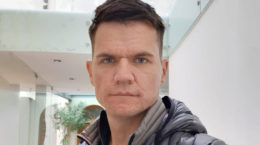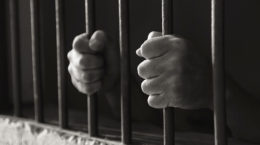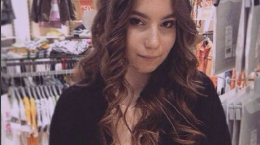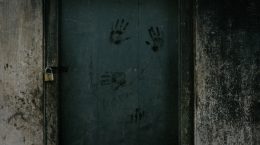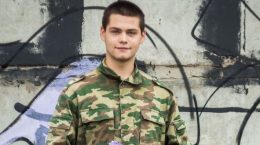We would like to share a good news: we managed to wrest a teenager from prison and gift him 8-10 years of freedom!
17-year-old Yulian Kurzhalov was looking at 8-10 years in prison under the infamous “anti-drug” article.
Actually, the body of “evidence” was absolutely the same as that in case of all the other adolescents sentenced to 8-10 years in prison (Our House, together with their mothers, is now fighting for their release). Again, there appeared “unidentified persons” in the case, and again the investigation claimed that Yulian acted within an organized group. During his detention, the police found 5 grams of α-PVP drug. Given that Vladislav Sharkovsky received a ten-year prison sentence for 0.49 grams of α-PVP, and Emil Ostrovko – ten years for 0.13 grams of marijuana and 0.49 grams of α-PVP, by measures of the Belarusian investigation these 5 grams were of “enormous weight”, so they were the most problematic moment for Yulian‘s defence.
His story can be found here (with english subtitles).
On April 16, 2019, we managed to reclassify Yulian Kurzhalov‘s case from part 3 of article 328 to part 1 of article 328. The judge sentenced the youth to 2.6 years of home arrest. It means that the 2.6 years he has to live with his parents. Those who are at least a little familiar with the specifics of the Belarusian justice know that judges do not usually “jump over” parts. At best they reduce the punishment by one part within the framework of one article of the Criminal Code.
Yulian, who had been in custody since the moment of his detention, was immediately released in the courtroom, which was cheered by people present there.
The situation is atypical for the Belarusian justice.
![]()
Why, this time, did we succeed in wresting the teenager from prison and not let the Court sentence him to 8-10 years in prison?
-
Yulian‘s mother asked Our House for help immediately (a few days) after the detention of her son. Other mothers came to Our House after Court’s sentences had been announced. It is very difficult to change the sentence if it has already been announced by a first-instance Court. It is easier to influence the process on the stage of the first-instance Court’s consideration. The authorities do not like to rule against their own decisions and admit their mistakes.
-
The experience of the struggle of other mothers was taken into account and analysed. It was very helpful that other mothers shared what they had learned from their bitter lessons, so Yulian’s mother was very well aware of the consequences for her son, she knew what the usual scenario had in store. She was ready to listen and fight.
-
Human rights defenders worked brilliantly.
-
The human rights defenders blocked the search of Yulian’s apartments. The Investigative Committee managed to conduct one search in the house of the minor, Yulian Kurzhalov, but did not find anything (drugs were found with Yulian himself). On March 4, 2019, investigators tried to carry out a second search in Yulian’s house, but human rights defenders Valery Schukin and Katerina Sadovskaya quickly arrived. Investigators just refused to search in their presence and left. Later, the Investigative Committee tried to carry out a search three more times, but each time human rights activists impeded the process. In the presence of human rights defenders as witnesses, the Investigative Committee refused to conduct a search. As a result, the second search never accurred, and the Court trial took place without it.
-
Three human rights defenders (Tatiana Mironova, Olga Karatch and Pavel Levinov) constantly wrote complaints and made consultations to Yulian’s mother 24/7 hours. For three months, more than 100 complaints about violations in Yulian‘s case were submitted to various state bodies. Investigators lost their nerve and they hastily referred the case to the Court. These complaints were of much use for the defence during the Court trial. In addition, it was clear to both the Court and the investigation that if the mother fights so fiercely at the initial stage, it will be hard to endure her complaints for 10 years. It is easier not to run a risk of dooming themselves to constantly make up answers to these complaints and spare the time for imprisoning 3-4 adolescents, whose parents would not bother with their complaints.
-
We managed to launch an intense information campaign about Yulian‘s case, including through the Our House YouTube channel, which released a video interview with Yulian‘s mother. The video had almost 7.000 views and caused a heated discussion in a number of groups on Belarusian social networks. The Belarusian authorities do not like when someone makes noise shows dissent. The authorities’ may react to noise in different ways, but in this case the noise played a positive role and benefitted Yulian.
-
The solidarity of Yulian’s family. Not only did mother and human rights activists fight for Yulian, but also other members of the family. This annoyed the investigation most. It got to the point that the Commission on Juvenile Affairs summoned the family several times and tried to conduct “educational conversations” to the effect: “let mother fight alone, why should father and grandmother fight? And it is better not to write complaints at all not to iritate the investigation.” The family‘s solidarity (which happens very rarely in Belarus) also helped in the defence of Yulian.
We congratulate Yulian Kurzhalov and his family on the fact that the boy is at last at home and can hug his mother and all the loved ones.
We continue fighting for the rest!
![]()



